They are our new generation of heroes, honourable veterans of a war we should never forget and who served with a pride that we cannot allow to be tarnished.
Having served where they were sent, Afghanistan veterans have faced tough challenges on their return – young servicemen and women coming to terms with their exposure to death, war and subsequent suicides.
Now, they say, it is more important than ever for people to come together and honour those who served.
Veteran Daniel Smith, 33, looks back on his service in Afghanistan with pride. He said his most challenging stint in eight years with the army was working with Mentoring Task Force One.
The combined arms battle group was tasked in 2010 with counterinsurgency operations in conjunction with US, Dutch and other coalition forces.
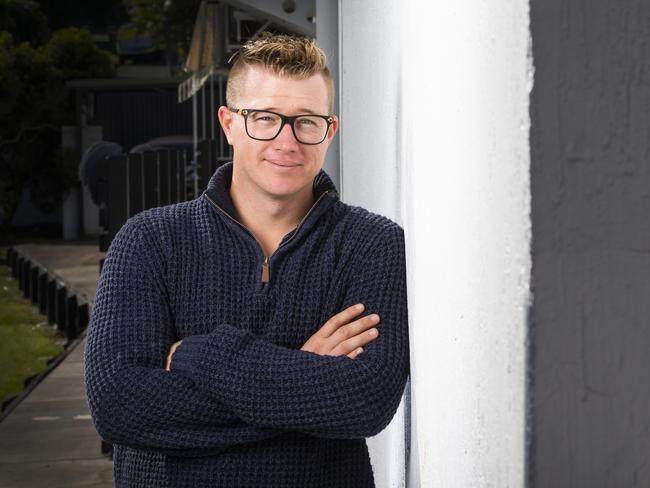
Towards the end of Mr Smith’s nine months in Afghanistan, he witnessed villagers who had been driven to poverty finally moving home.
“I saw that we had made a real difference,” he said.
“I think there was a lot of good done and I was glad to be a part of that.”
For many returned soldiers, reintegration was soured by the findings of alleged war crimes by Australian troops in Afghanistan.
Mr Smith, from Carrara, was not involved but said a lot of veterans felt attacked by the backlash.
“If bad things have happened overseas, the laws are in place for a reason,” he said. “But you can’t paint an entire veteran community with the same brush.”
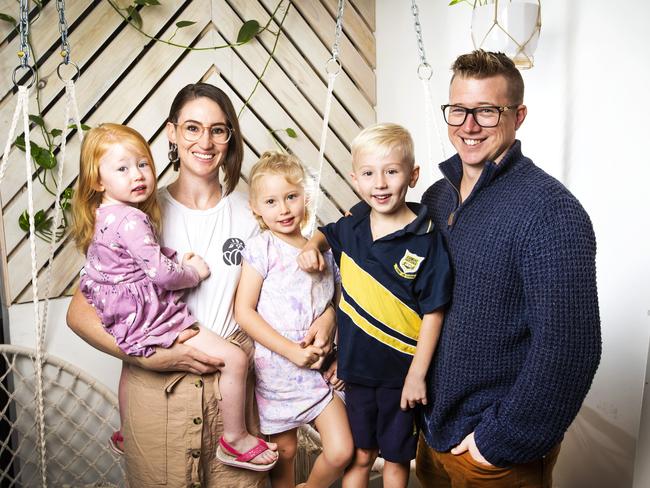
The threat of a tarnished reputation has been just one challenge for returned veterans. Mr Smith said he felt stripped of his entire identity when he was discharged in 2014.
“My eyes had been opened to something different,” he said. “It was hard to hear people complain about trivial issues when I had seen the poverty that people were living in over in Afghanistan. You can’t expect people to understand your experiences but I think that is something a lot of veterans struggle with.”
Fellow infantry soldier Adrian Sutter, 35, has created an app designed to reduce anxiety and depression and help returned veterans find a new identity.
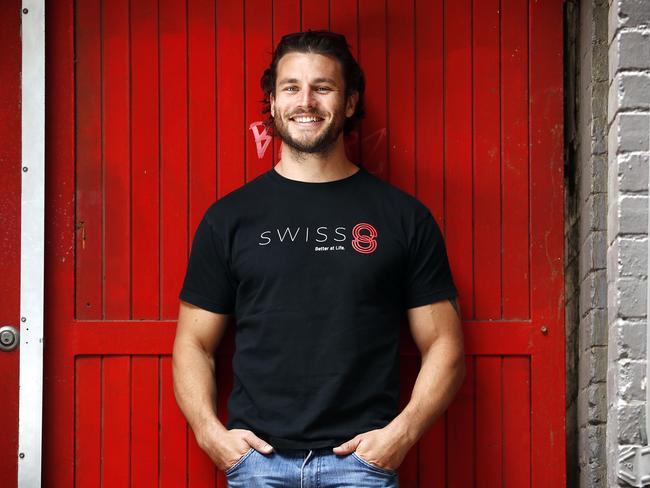
The Swiss 8 founder, who was based in Townsville for most of his service, was deployed to Afghanistan with Mentoring and Reconstruction Task Force 2.
He discharged in 2012 with no transition training and learned the hard way how to come to terms with his exposure to war and death.
Mr Sutter said there was a feeling of disappointment in the veteran community in how some media and social media commentary had portrayed soldiers.
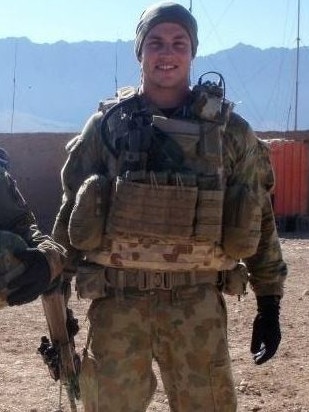
“They have painted all soldiers as murderers and made the whole veteran community feel disconnected from the rest of society,” he said. “That’s something that needs to change. We should support our troops until they have been proven guilty. We have trained them to do a job.”
Mr Sutter said it was important for Australians to stop on Anzac Day to honour the service of veterans.
“Disconnection is the greatest cause of depression and when you discharge you are disconnected from your mates and your identity,” he said. “Veterans feel divides even within our own community, and Anzac Day is the one day to put that aside and bring people together.”
Paul Langer said he was heading to Currumbin RSL today to reflect on the sacrifices made by those serving and those who had served over the past century. The 31-year-old former private joined the army at 18 and said his deployment in Afghanistan with MTF-1 was a defining period of his service.
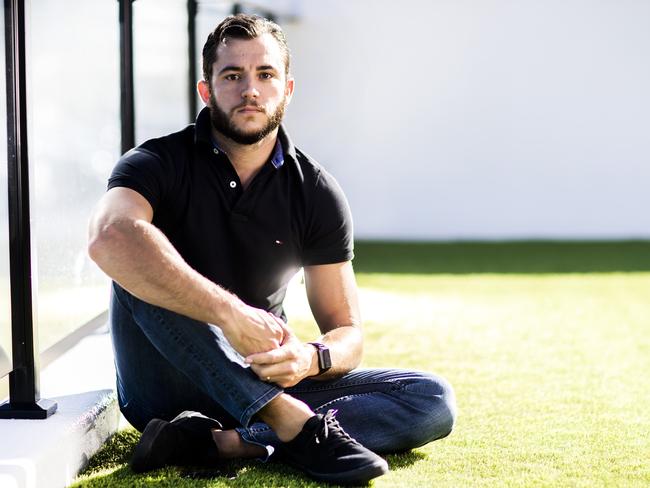
“There was a great deal of really intense times with fighting and injuries and loss of life,” he said. “I’m most proud of the way MTF-1 pulled together to make a difference. That’s a high point in my career but also a sore point because I know a lot of families lost their loved ones.”
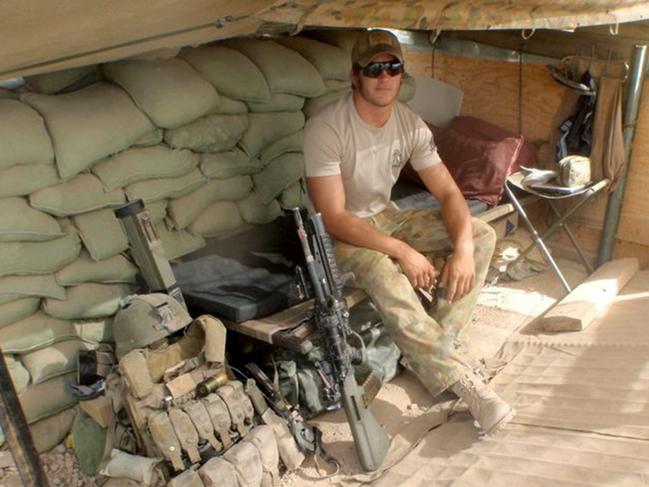
Mr Langer (left) said the duty of care the Australian Defence Force had during active duty did not translate for him post discharge and there was a feeling of “being thrown out in the cold”.
He agreed with Mr Sutter that the support offered to young veterans had evolved in recent years as RSLs, the ADF and the Department of Veterans’ Affairs sought to hear from them and learn how to provide better support.
Mr Langer said, for the most part, he felt veterans were supported by the public and until alleged war crimes were dealt with in court.
The focus should remain on an ongoing mental health crisis that veterans faced.
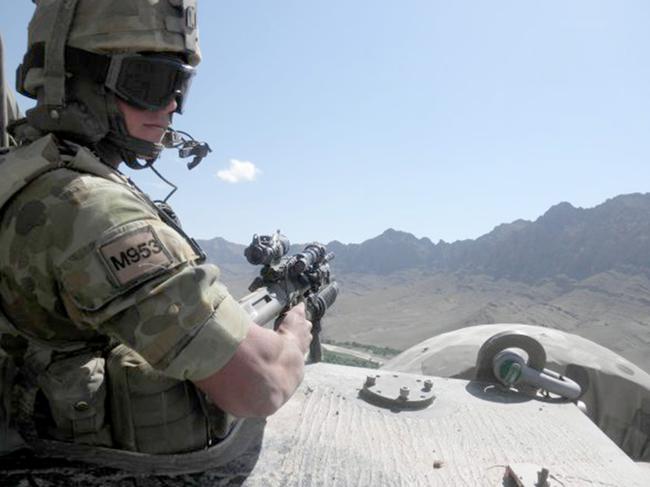
An RSL Queensland spokesman said each generation of Australian veterans had its unique issues and perspectives.
“While those deployed overseas in recent years may not experience the heavy casualties, relentless fighting and inhospitable conditions of earlier generations, their service and sacrifice cannot be understated,” he said.
“Overseas deployment can have a profound impact on a service person’s mental and physical wellbeing, their sense of identity and their ability to transition to a civilian life post-service. This can negatively impact their mental health, quality of life and their relationships with their family and friends.”
The spokesman said Anzac Day was an opportunity to remember the legacy of all of current and former service personnel and the sacrifices of the families who stood behind them.
“Commemorating Anzac Day is powerful way for Queenslanders to demonstrate that they stand shoulder to shoulder with all veterans, as they have since those first Diggers returned home from foreign shores,” he said.
The spokesman said RSL Queensland was always looking for ways to better support its younger members after their service ended.

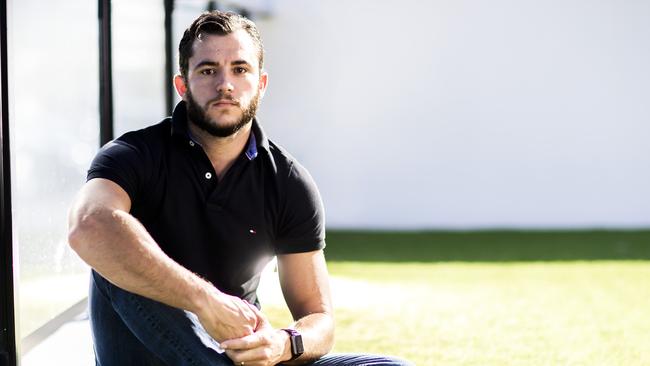
Add your comment to this story
To join the conversation, please log in. Don't have an account? Register
Join the conversation, you are commenting as Logout
Highway closed after four-car crash
A highway south of Brisbane is closed in both directions following a serious crash involving four vehicles.
Shock ‘drop, run’ claims against ambos as hospital staff ‘pushed to extreme’
Paramedics are being forced to leave patients with chest pains and in need of palliative care unmonitored at hospitals in an effort to get back on the road and reduce ambulance ramping wait times, staff allege.